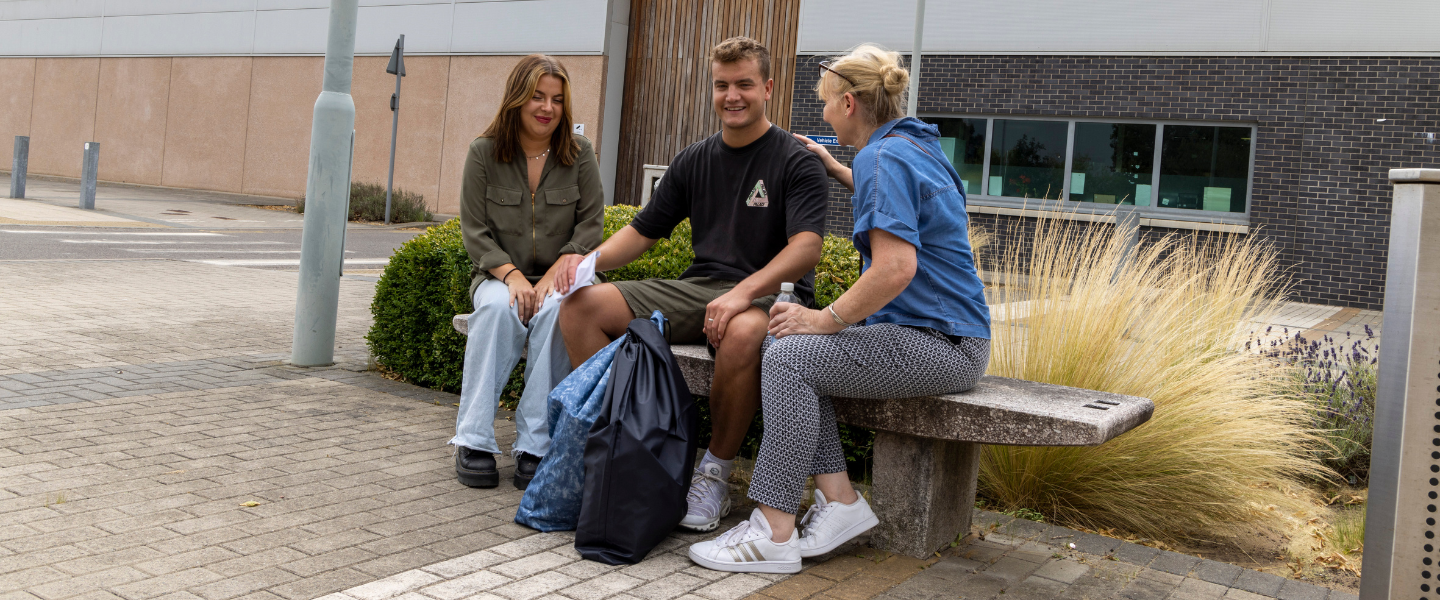06/09/2024
CEO blog
Five tips for supporting a loved one leaving prison
A prison leaver's most effective resettlement support is often their family. It's the partners, parents, and other family members who are there to get their loved ones back on their feet when they leave prison. Preparing for a loved one's release can be exciting but also stressful. Here are five tips for supporting them in the crucial few days and weeks after release.
1. Consider how you have changed
Both you and your loved one have likely changed while they have been in prison. Take time to think about what has changed – you may want to make a list of the changes you think have happened while they've been in prison.
You may also need to manage your expectations of what life will be like. In reality, things are unlikely to go back to exactly how they were before. Your loved one may need time to adjust to life on the outside and to being back in a busy household again.
“Find activities or a hobby that the person has given up that you could engage in together (at first). Finding something the person can get enthusiastic about and devote time to, especially in those first few weeks, is important.”
2. Understand their licence conditions
Your loved one will probably be released with licence conditions, meaning they will have to follow certain rules. If your loved one breaks these rules, they can be sent back to prison. You can ask to see a copy of their licence conditions. This will help you understand the rules they have to follow and mean that you can support them on release.
“When you’re out and about as a family, you have to think about things like, ‘Is that café a licenced premises?’ or ‘Will we be back home in time?’ It’s not as simple as doing things the way you did before. But it does get easier.”
3. Consider the impact on your household budget
Your financial situation will probably change. You no longer have to pay to travel to prison visits or send money to your loved one in prison. However, having another person at home will impact household bills.
If you receive benefits, you must tell the Department for Work and Pensions (DWP) that you have another adult living at home. This could affect your payments, particularly if you receive contributions towards your housing costs. Also, remember that your partner may be entitled to benefits such as Universal Credit. Contact the Citizens' Advice Bureau for more information.
“When my dad left prison, the whole family chipped in to make sure he had everything he needed – food, clothing, mobile phone. I don’t know what he’d have done without that help. So many people he knew were leaving prison with absolutely nothing, and you can only claim so much financial support. His council bedsit didn’t even come with carpet – so we paid for that.”
4. Talk to your children
If you have children or young people in your home, it's a good idea to talk to them about how they feel. They could feel a range of emotions – they may be excited or worried, or feelings of anger or abandonment may re-emerge.
Schools and teachers can also offer invaluable support when a parent or loved one is released from prison. Consider talking to your children's teachers to make them aware so they can offer additional support for your family.
“My daughter - she had been without me for a long time. Our visits had been lovely. However, upon my return, she had a lot of anger (rightly so) at me for going to prison and leaving her. My mum was amazing, reassuring me that she would come around, which took a long time. I think this kind of support is essential.”
“A lot of people find that a lot has changed in their children's lives, especially if a lot of time has passed. Giving a more comprehensive idea of what they have been up to can help with their relationship.”
5. Think about the basics
You can help with some of the basics that will help your loved one once they're out. Make a list of all the day-to-day things you may be able to do before their release or do with them once they are back home. This could include registering with a GP, setting up an email account, job-hunting and finding local support services.
The Hardman Trust offers advice on practical support that could make all the difference: https://www.hardmantrust.org.uk/how-we-help/useful-information-for-people-leaving-prison/
Take a look at our list of other helpful organisations for support with substance misuse, gambling, accommodation and more.
“Avoiding drugs and alcohol was always my problem, especially the first few days. I'd be all nervous getting out and buy a beer to get rid of the nerves at the first opportunity, then end up back where I started, drinking and using. I think it's the same for a lot of people in prison.”
“Many leaving prison have substance misuse issues. For those who have maintained sobriety whilst in prison, this is a daunting prospect on the outside. Having no social circle (that is safe) can be really isolating. Having peer support groups can really help with this if family can find local services.”
For further advice, Pact has a comprehensive support pack - 'Going Home' - for people with a partner returning home after prison: Going Home. You can also call the Prisoners’ Families Helpline on 0808 808 2003 or email info@prisonersfamilies.org.

